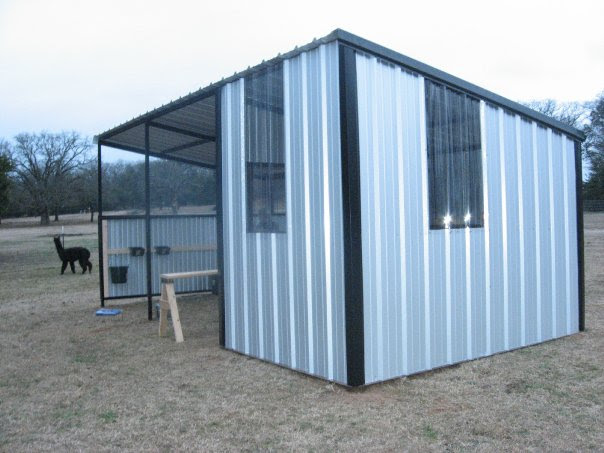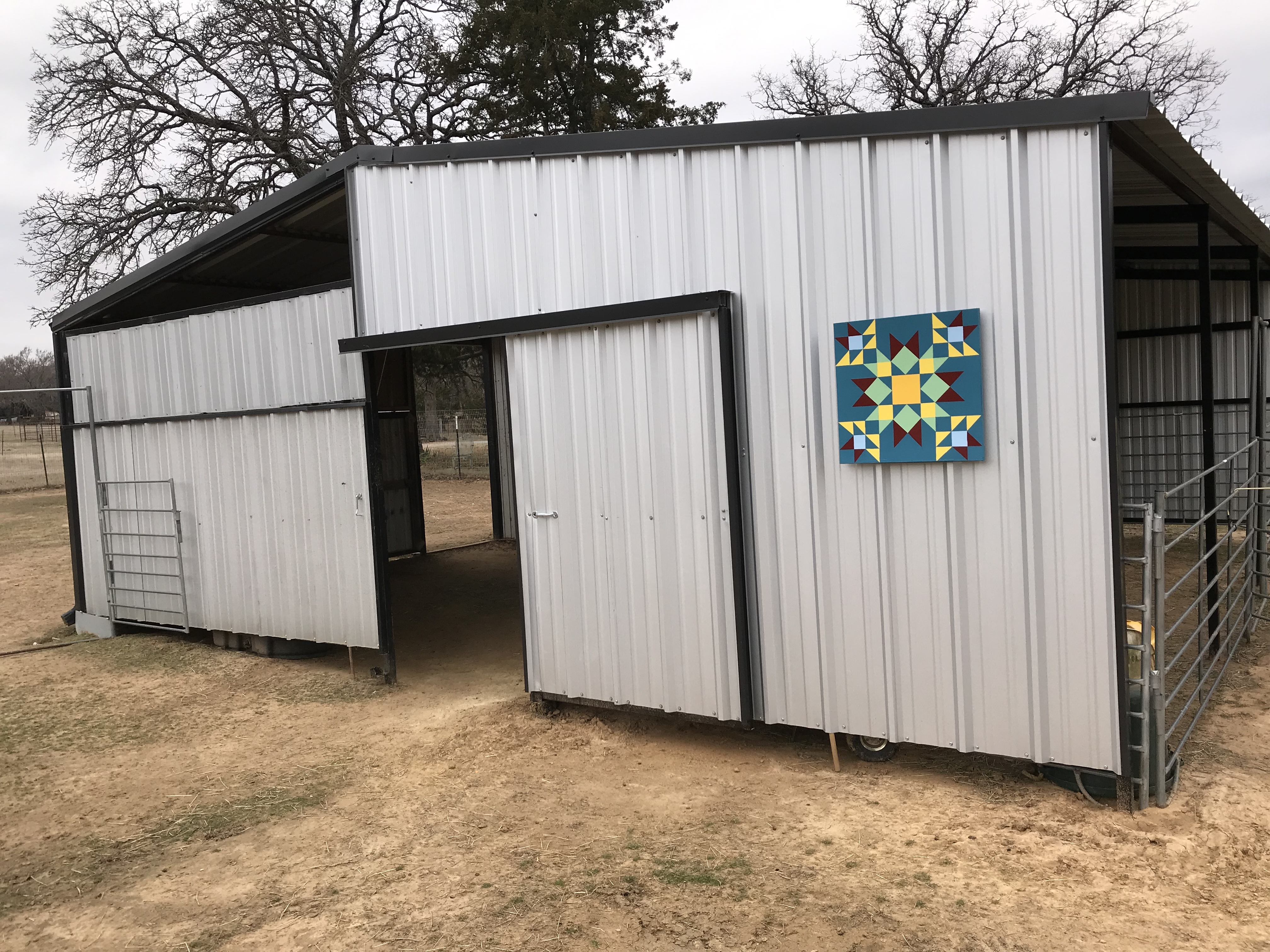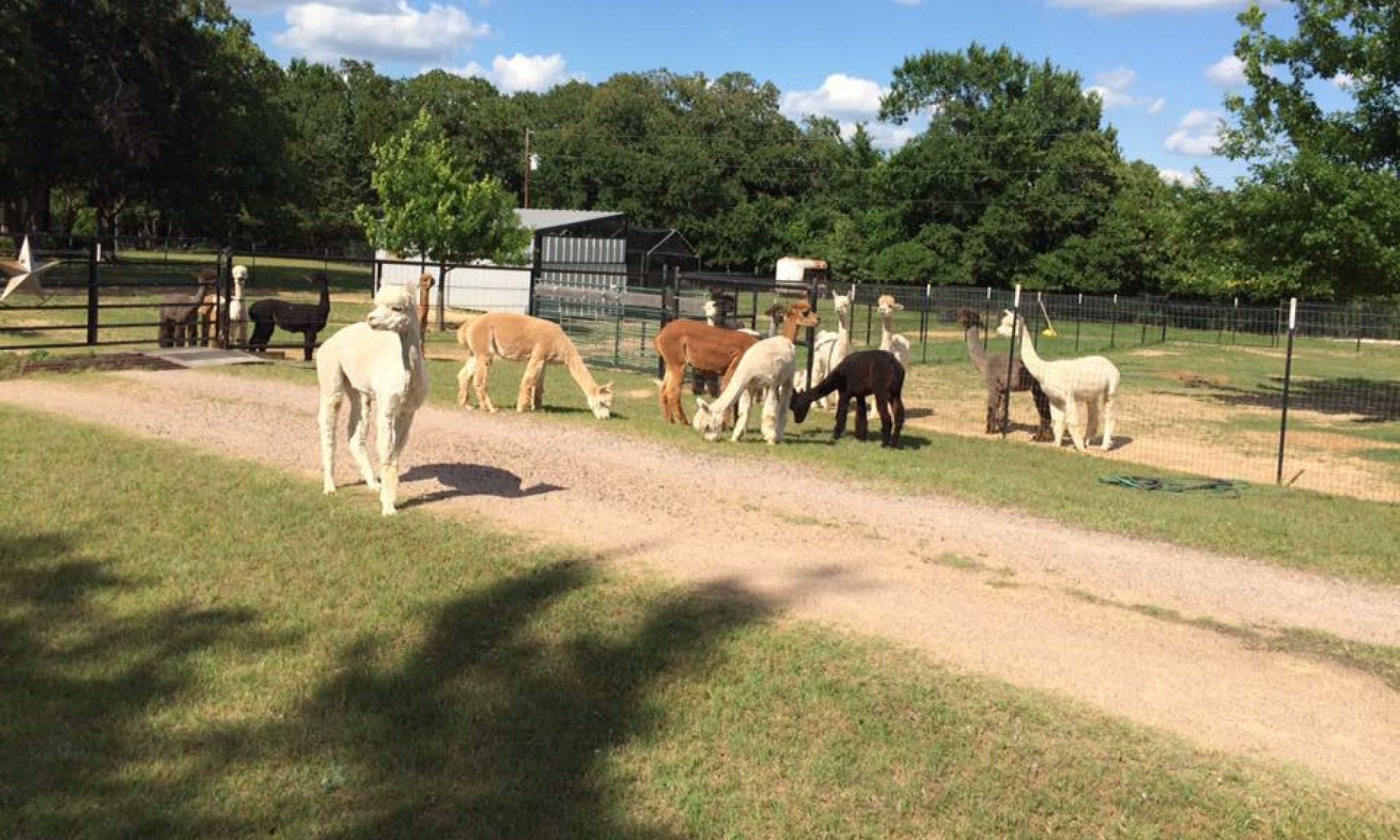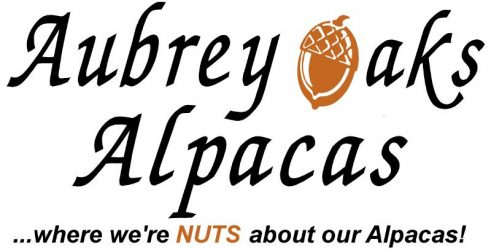Alpacas like to be outside. And being in sunshine helps them get their Vitamin D. But they need protection from the elements here in the US. In South America they do not have structures to protect them. Consequently the smaller and poorer native farmers which comprise 80% of the Alpaca herds experience a 30-40% cria mortality rate.
Consequently you need to give your herd protection most from a a driving, windy cold rain or snow event or from hail events. A huge barn is not required. But a sizable, well built loafing shed will work. Be sure to allow for your Alpaca addiction to grow. We had to double the size of our first two sheds at year 9. And keep in mind that if you are in the city you will be dealing with permits and inspections.
Locate your sheds/barns on high ground.


Take drainage around sheds/barns into consideration when placing your shed/barn. Soppy, wet barn floors are a sure way to negatively impact your herd’s health.
Run-in/loafing sheds should open to the east in the Texas and Oklahoma area due to prevailing weather patterns. Large barns should have sides added for shade and protection from rain and hail.
Run-in/loafing sheds can need windows/doors. Barn-style shed doors are generally better than a swinging door.
Inside the Shed/Barn
Install plenty of plugs in your shed/barn for use with fans to reduce the needs for extension cords.
Install freeze proof water risers and hydrants where the water that is above ground drains into the ground when the water is turned off. Or, at least, wrap your exterior pipes and have a below ground drain valve inside the cutoff.
We have water risers out in the fields to enable us to add sprinklers or water down their legs and bellies.
Plan a hay room in your shed/barn to store your investment in hay properly.
When it is really cold put down straw. In the shed/barn. The Alpacas will cush during cold weather to maintain warmer temps. Straw generally is cheaper than your hay. Most feed stores supply it.
Use pelletized equine pine bedding to help dry up wet spots. It’s available at your local feed store, or TSC, etc.
You might have gates into your shed pens. Use bungees or ties to keep them open as wind may blow them shut. This would trap you right herd in or out of the shed.
Read next: Feeding and Hay

